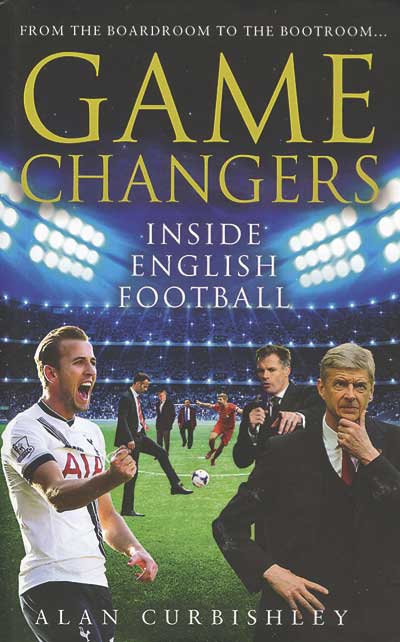 Inside English football
Inside English football
by Alan Curbishley
Harper Sport, £20
Reviewed by Jon Matthias
From WSC 357 November 2016
It’s tempting to see this as a cash-in. Alan Curbishley has gone through his contacts book, made a couple of calls and set up some interviews with a mix of big names and people you and I probably won’t have heard of. How many of the interviews he’s done and how many are by his collaborator, freelancer Kevin Brennan, is hard to tell. The bits that are meant to be Curbishley introducing topics are full of cliches such as “in and around” and long run-on sentences that last for paragraphs. So they feel genuine.
The USP of this book is that Curbishley can take you “inside the game” and reveal what has changed in the last couple of decades. Pretty much everyone he talks to agrees that it’s the sheer amount of money in football, that players get too much too young these days and there are a lot more foreigners in the game than there used to be. Quite why anyone needs to hear these things from Alex Ferguson or Jamie Carragher isn’t explained. Like any ex-pro pundit, Curbishley seems to think the plebs who just go to games couldn’t possibly know what’s going on.
The chapters that are interesting are the interviews with the agent and the backroom staff. The sheer amount of gear a kit man has to transport for a Premier League club is crazy. At last the rules governing when and where change strips can be worn are explained, more or less.
The sports science that keeps the best players at the top is complex to administer as well – they have individualised isotonic drinks and snacks, meaning they all have their own bottles and protein bars during and after the match. It needs so much organising they can’t have them in the dressing room any more.
The real problem with this book is precisely what it champions. Curbishley is an insider, but that means he doesn’t rock the boat. When Rio Ferdinand says everything is monitored and “there’s no escape from it”, there’s no mention of drug tests.
Greg Dyke gets a free pass when he bemoans the opposition to Premier League B teams in the lower leagues. David Sullivan doesn’t get asked any questions about the Olympic Stadium. Agents look like virtuous, altruistic, irreplaceable parts of a well-functioning system that exists just to care for players.
In fact, the main nugget of interest is Steven Gerrard’s comment that Luis Suárez just used Liverpool as a stepping stone in his career. You get the sense that Gerrard is disgusted that a former team-mate, still adored as a club legend, would treat his beloved Liverpool that way. It’s about the only note of controversy, though.
The one thing this book about changes doesn’t mention is how fast change happens. It’s just out in hard cover but already out of date. Ryan Giggs isn’t at Manchester United any more and it’s highly unlikely he will ever manage there. Ray Lewington and his boss Roy Hodgson have both moved on from England.
As a snapshot in time of a few personalities involved in the game, this book is interesting. As a study of how football has changed, it’s less informative than it thinks it is.